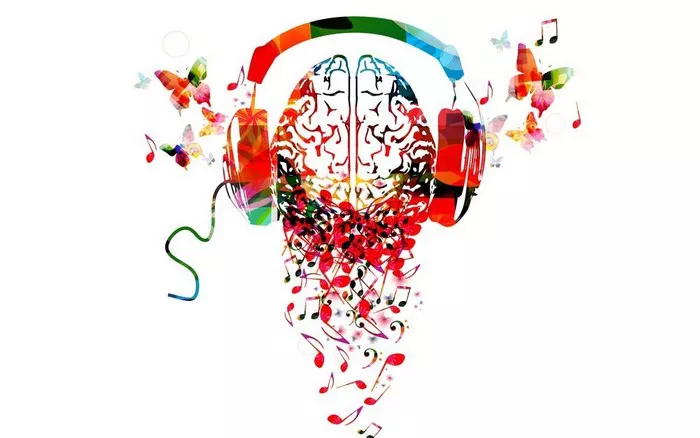Music has a profound impact on human emotions, cognition, and behavior. For centuries, people have recognized the power of music to evoke strong emotions, enhance mood, and even improve cognitive functions. In recent years, scientific research has delved deeper into understanding how music affects brain psychology. This article explores the fascinating ways in which music influences our brains, from emotional responses to cognitive processes, and the implications for mental health and well-being.
How Does Music Affect The Brain Psychology?
One of the most striking effects of music on the brain is its ability to evoke emotions. Different types of music can elicit a wide range of emotional responses, from joy and excitement to sadness and nostalgia. This emotional connection is deeply rooted in the brain’s limbic system, which is responsible for processing emotions and memories.
Research has shown that listening to music activates various regions of the brain, including the amygdala, which plays a key role in processing emotions such as fear and pleasure. Neuroimaging studies have demonstrated increased activity in the amygdala when subjects listen to emotionally charged music, indicating a direct link between music and emotional processing.
Moreover, music can trigger the release of neurotransmitters such as dopamine, which is associated with feelings of pleasure and reward. This dopamine release contributes to the positive emotional experiences that music can induce, making it a powerful tool for mood enhancement and emotional regulation.
Cognitive Enhancement
Beyond its emotional impact, music also has a profound effect on cognitive functions such as:
- memory
- attention
- creativity
The intricate patterns and structures in music engage various cognitive processes in the brain, leading to cognitive enhancement in several ways.
Memory: Music has been found to enhance memory recall, particularly in individuals with conditions such as :
- Alzheimer’s disease
- dementia
The rhythmic and melodic elements of music can stimulate memory pathways in the brain, improving the retention and recall of information.
Attention: Certain types of music, such as instrumental pieces or ambient music, can enhance focus and attention. This is especially beneficial in environments where concentration is required, such as studying or working.
Creativity: Music has the ability to stimulate creative thinking and problem-solving skills. Listening to music while engaging in creative tasks can inspire new ideas and perspectives, leading to increased creativity and innovation.
Therapeutic Applications
The therapeutic potential of music in treating various mental health conditions has gained significant attention in recent years. Music therapy, a specialized form of therapy that uses music to address emotional, cognitive, and social needs, has shown promising results in improving mental well-being.
Stress Reduction: Listening to relaxing music has been found to reduce stress levels by lowering cortisol, the stress hormone, in the body.
Music therapy techniques such as guided imagery and progressive relaxation can further enhance stress reduction.
Anxiety and Depression: Music therapy has been effective in alleviating symptoms of anxiety and depression by promoting relaxation, emotional expression, and positive mood states. Therapeutic interventions such as lyric analysis and songwriting can help individuals process and cope with difficult emotions.
Pain Management: Music has analgesic properties and can reduce perceived pain levels, particularly in clinical settings such as hospitals and rehabilitation centers. Music therapy interventions, such as listening to music during procedures or playing musical instruments, can complement traditional pain management strategies.
Cognitive Rehabilitation: For individuals with cognitive impairments due to conditions such as traumatic brain injury or stroke, music therapy can aid in cognitive rehabilitation by stimulating neural pathways, improving memory, and enhancing cognitive skills.
Cultural and Individual Variability
It’s important to note that the effects of music on brain psychology can vary based on cultural backgrounds, personal preferences, and individual experiences. Different cultures have unique musical traditions and preferences, leading to diverse responses to music stimuli.
Additionally, individuals may have specific music preferences that resonate with their emotions, memories, and life experiences. For example, a song that holds sentimental value or reminds someone of a significant event may elicit stronger emotional responses compared to unfamiliar music.
Future Directions in Research
As our understanding of the brain continues to evolve, ongoing research is exploring new avenues in the field of music psychology. Advances in neuroimaging techniques, such as functional magnetic resonance imaging (fMRI) and electroencephalography (EEG), allow researchers to observe real-time brain activity in response to music stimuli.
Conclution
Future studies may focus on personalized music interventions tailored to individual preferences and therapeutic needs. Additionally, research exploring the neural mechanisms underlying music’s effects on cognitive functions and emotional regulation holds promise for developing targeted interventions for mental health disorders.
In conclusion, music is a powerful medium that profoundly influences brain psychology, emotions, cognition, and well-being. Understanding the mechanisms through which music affects the brain can lead to innovative therapeutic approaches and enhance our appreciation of music’s role in human experience.
Related topics:

























